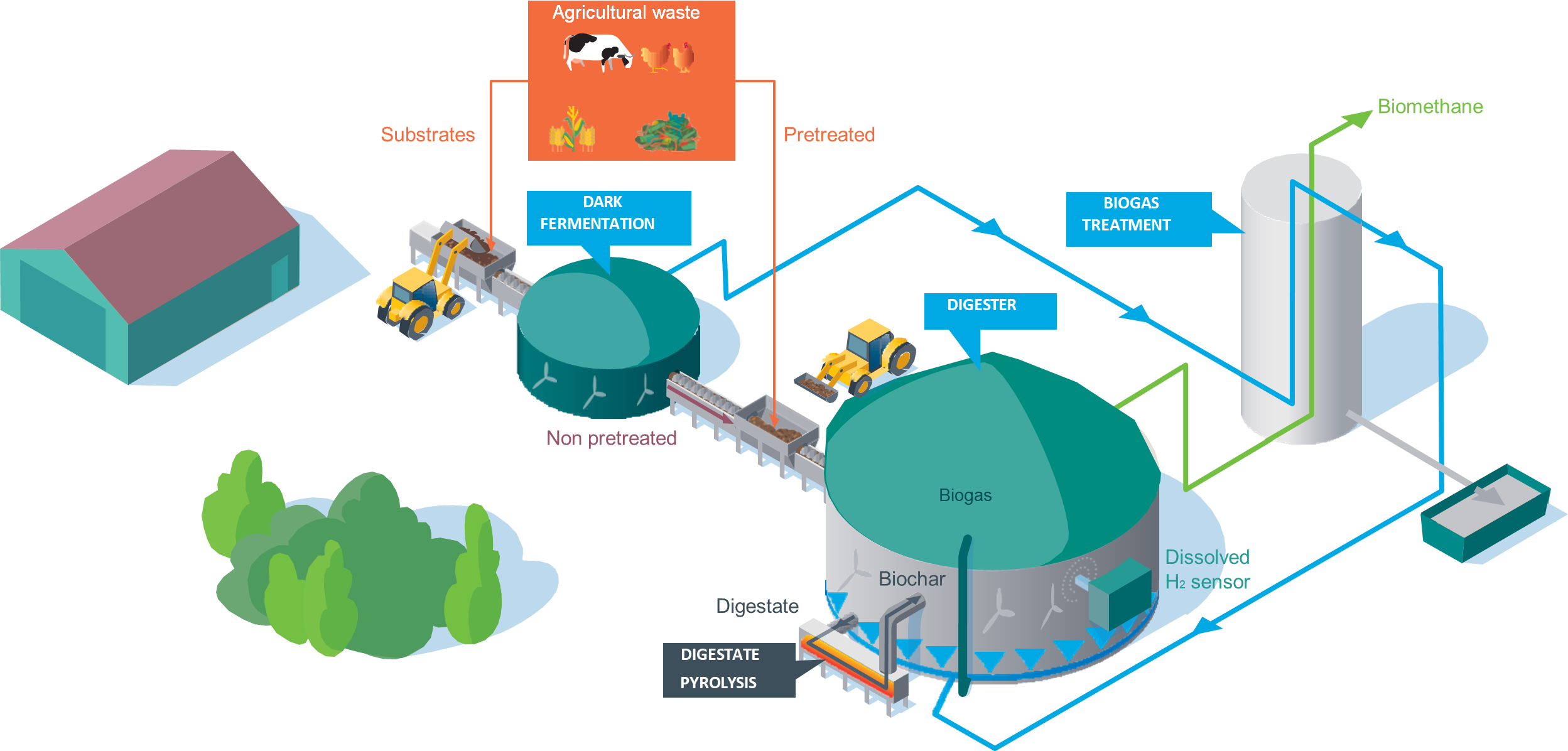

We believe that the combination of these processes could increase biomethane productivity by 30 to 40% while keeping the investment costs at an acceptable level
While multiple anaerobic digestion plants have been developed over the past decade in France, the technology is still rather unattractive to investors because current installations produce biogas with a rather low concentration of biomethane. This requires the biogas to be purified, which represents around 30% of the production costs and compromises the installation’s economic viability.
The Metha-HYn project is designed to dramatically improve the productivity of the anaerobic digestion process by injecting hydrogen into the digester as well as adding biochar. In order to make this a complete in situ circular production process, the required hydrogen will be sourced from an onsite dark fermentation process producing a mixture of H2 and CO2 and a subsequent purification treatment that converts the CO2 into CaCO3 (Calcium carbonate). The biochar will be produced by pyrolysis of the digestate.
All these processes will be first developed and tested separately and then integrated into a pilot installation of significant size (with a 250-litre reactor) to be built in Clermont-Ferrand.
Sponsored by ADEME, the project is coordinated by Lab Crigen Biogas, Biomass & Waste Lab and involves Apesa, IS2M-CNRS and INRAE-LBE as partners. It was kicked off in March 2022. After the first years of the project, biomethanation in situ is promising with good results that increase production around 30% and were all the hydrogen is consumed. In the meantime, biochars from digestates don’t seem to provide the expected results, but this remain to be confirmed in the next steps of the project. The development of H2 sensors are ongoing with first experimental test in 2024.
Expert Ms. Marine Juge is excited about the prospect of boosting the economic viability of anaerobic digestion: “We believe that the combination of these processes could increase biomethane productivity by 30 to 40% while keeping the investment costs at an acceptable level. And it’s a completely integrated solution ready to be implemented locally in various sizes.”